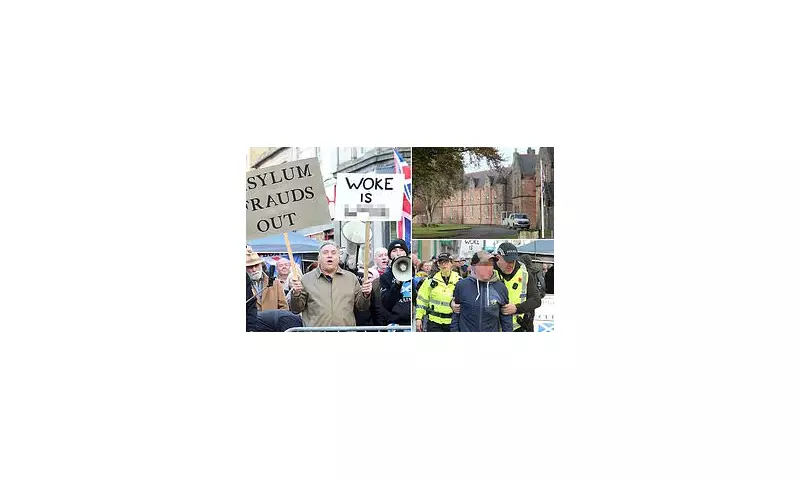
Mass Protest Against Barracks Asylum Plan
The Scottish community of Inverness has delivered a powerful message of opposition to Keir Starmer's government over controversial plans to house hundreds of asylum seekers at a historic military base. War heroes, pensioners, parents and children united yesterday in a significant demonstration against Labour's proposal to convert Cameron Barracks into accommodation for single male asylum seekers.
This marks the first major protest since the UK Government revealed new proposals for Ministry of Defence sites last month. The demonstration gained additional momentum after the Mail on Sunday exposed that the Queens Own Highlanders Regimental Association faces eviction from its barracks office within weeks to accommodate up to 309 asylum seekers.
Veterans Association Faces Eviction
The threatened veterans' organisation has supported former soldiers of the regiment for decades, counting the late Prince Philip as its former Colonel-in-Chief. The association has maintained its base at the site for many years and previously hosted veterans' reunions attended by Prince Philip himself. Due to the impending changes, the organisation now plans to hold its 2026 reunion at an alternative location.
Former Scottish Conservatives leader Douglas Ross, who serves as an MSP for the Highlands and Islands, stated: "This protest reinforces the strength of feeling in Inverness and around the Highlands of how completely inappropriate and unacceptable these plans are."
Ross emphasised that he had heard from numerous veterans and military families who feel "deeply troubled by what is being proposed" and called on Starmer's government to abandon the controversial scheme.
Local Concerns Over Safety and Infrastructure
Liberal Democrat MP Angus MacDonald has been vocal about concerns raised by families of serving personnel living adjacent to Cameron Barracks. These worries intensify particularly when soldiers are deployed overseas. MacDonald, who was once stationed at the barracks during his army service, highlighted the "serious concerns" expressed by military families regarding the asylum seeker accommodation plans.
The MP urged the Labour Government to "prioritise speeding up asylum decisions instead of shuttling people to inappropriate sites like Cameron Barracks." He argued this approach would enable quicker returns for those without valid claims while allowing legitimate refugees to integrate and contribute to communities.
Local Conservative councillor Isabelle MacKenzie, representing the Millburn ward containing the barracks, plans to meet with army personnel relatives next week. Speaking from the protest, MacKenzie expressed disappointment at the lack of coordinated approach and highlighted specific concerns:
- Military wives feeling vulnerable when husbands are deployed overseas
- Existing drug-taking and anti-social behaviour problems in Inverness centre
- Strained local infrastructure including GP and dental services
Highland Council has formally requested a meeting with the Home Secretary regarding the Inverness proposal, accusing the government of inadequate consultation.
Political Backlash and Government Response
Tory MSP Edward Mountain has raised the issue in Scottish Parliament, describing local anger as justified. He criticised the "frankly disgraceful" treatment of veterans and warned of additional pressure on already stretched public services.
Andrew Bowie, Shadow Secretary of State for Scotland, condemned the government's approach: "It's an absolute disgrace but not untypical of this government that they are unwilling to engage with the community on such a significant issue."
Independent MSP Fergus Ewing defended constituents' concerns: "The locals concerns are borne out of genuine fears for safety, and lack of any spare health services at Raigmore. They are based on realism not racism."
A Home Office spokesperson responded: "We are furious at the level of illegal migrants and asylum hotels in this country. Public safety remains our first priority. We are working closely with local authorities, property partners and the local community as we transition away from using hotels."
The government maintains its commitment to using military bases like Cameron Barracks to reduce reliance on hotel accommodation for asylum seekers, despite growing local opposition and political pressure to reconsider the plan.





